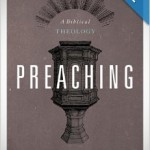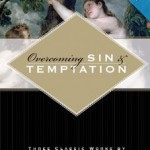
Jeremiah Burroughs called a “rare jewel.” Thomas Watson said, “I do not know of any jewel in religion that more bespangles a Christian, or glitters in the eyes of God and man more than this . . . How every Christian should be ambitious to wear such a sparkling diamond!”
Just what is this jewel that we should be ambitious to find? The jewel of contentment.
In 1 Timothy 6:5 Paul says, “But godliness with contentment is great gain.” Let’s define our terms here. Godliness in the New Testament references a life of reverence before and obedience to God. Contentment (αὐταρκείας) here is a fascinating word, it literally means “self-sufficient.” The Stoic philosophers of the first century loved this idea. By emphasizing self-sufficiency, the Stoics advocated a life marked by detachment from things or outside possessions and stressed independence. And Paul picks up on this word and its importance, but he provides us with the Christian use of the term. The Bible tells us that in the strictest sense, only God can be said to be “self-sufficient” (His aseity); He rests fully satisfied in and with Himself alone. But it is the glory of God to communicate His sufficiency to His children, thereby making them self-sufficient. How does that happen? Through faith in Christ. You see, contentment is not just a rare jewel, it is also a gospel mystery.
The Bible tells us that we were born into sin, therefore envy and covetousness flowed out of our hearts from the minute we first breathed in air. Then as the life of sin moves on it becomes increasingly marked by striving and searching for satisfaction in the things of this world – place, power, pleasure. But true satisfaction in those things never comes. The good news of Christ Jesus is that He came and perfectly satisfied the law of God, then He went to the cross and satisfied God’s wrath against sin by dying as a substitute for any who would place their faith in Him. And those who place their faith in Christ are not only saved from their sin, but are united to Christ and therefore become partakers of His sufficiency. So Christian contentment, αὐταρκείας, is not a state of self-sufficiency, but the state of Christ-sufficiency. This is why Paul says in 2 Corinthians 6:10 that he can possess nothing, while simultaneous be in possession of everything in Christ.
Godliness with contentment is great gain. Now in 6:7-10 Paul gives us three reasons to be content.
First, in 6:7 he says, “For we brought nothing into the world, and we cannot take anything out of the world.” Reason number one: you can’t take it with you. Here Paul is merely echoing a couple rich Old Testament texts. After losing almost everything at the hand of Satan Job states in 1:21, “Naked I came from my mother’s womb, and naked shall I return.” After surveying every pleasure offered in this life Solomon said in Ecclesiastes 5:15 it was all meaningless for, “As he came from his mother’s womb he shall go again, naked as he came, and shall take nothing for his toil that he may carry away in his hand.”
The second reason is found in 6:8, “But if we have food and clothing, with these we will be content.” Reason number two for being content: you have enough already. Discontentment always wants something more or something else, it’s why we could say’s discontentment is life’s burglar. Because even when you get what you think you want – a new home, better job, more toys, clothes, or gadgets – you soon find that you are discontent all over again. I recently bought some weed killer that said it would kill weeds for up to six months – it’s a temporary fix. Believing contentment comes from possessions is a temporary fix. You get something new that you want and you might be content for a few months, but soon enough the noxious weed of discontentment will rise again. That’s because contentment does not come from what you have, but from who you are in Christ. The old hymn has is right, “Thou o Christ, are all I want; more than all in thee I find.”
Reason number three for being content: discontentment leads to disaster, notice 6:9, “But those who desire to be rich fall into temptation, into a snare, into many senseless and harmful desires that plunge people into ruin and destruction. The desire for monetary wealth is nothing less than a tempting snare of the devil and according to 6:10 is a root of all kinds of evil. Let’s make sure to note that Paul is not saying people who are rich fall into this trap, but those who desire to be rich. The reason why is that through this desire, or what Paul calls a craving, some have wandered away from the faith and pierced themselves with many pangs. The word pierced more narrowly means “impale”; a love and desire of money has impaled many with grievous pangs and more tragically, caused some to wander from the faith. Jesus himself said this would happen; do you remember the parable of the sower? Seed thrown on the third soil lands among the thorns and Jesus said, “As for what was sown among thorns, this is the one who hears the word, but the cares of the world and the deceitfulness of riches choke the word, and it proves unfruitful” (Matt. 13:22)). You cannot serve two masters, He also said. You cannot serve God and money.
So the, we have three reasons to be content according to this passage: 1) you can’t take it with you, 2) you have enough already, and 3) discontentment leads to disaster. What we see in this text is something incredible, that contentment does not consist in adding possessions or pleasures, but in subtracting from our desires. That’s the paradoxical mystery of this rare jewel of the Christian life. Contentment is reveling in Christ’s sufficiency and brings great gain to the life of godliness. We need to see one glorious truth from this passage, “Godliness is especially sweet when the soul is content in Christ.”










